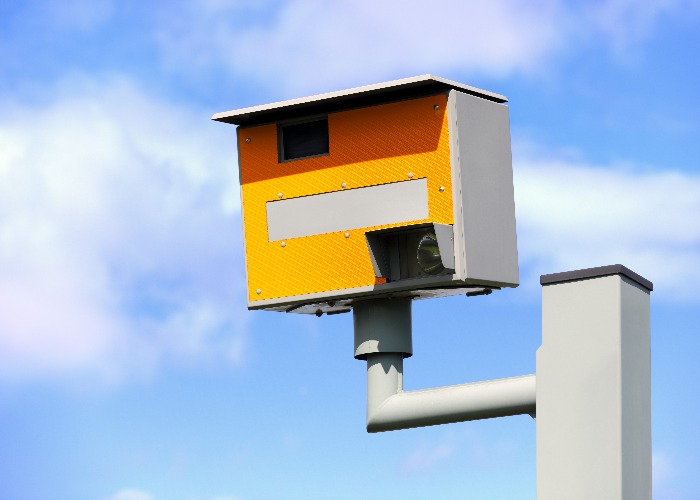How to beat an unfair speeding fine

If you've been flashed for speeding on the road, then you may be able to avoid being fined or getting points on your licence.
Sections
Thousands of speeding fines written off each year
Getting flashed by a speeding camera can be a bit of a nightmare for drivers of all ages, but there are plenty of occasions where the fine issued ends up being written off.
In fact, according to analysis from the RAC Foundation one in six speeding offences which were issued in 2020-21 were later cancelled. In total, 2,426,950 speeding fines were issued over the year, of which a whopping 404,335 were dropped (17%).
This is notably up from the 330,623 cancellations in 2019-20, which represented 13% of the total speeding offences.
There is some regional disparity when it comes to cancellations too. Almost two in five (39%) speeding fines issued in Greater Manchester and Warwickshire were cancelled, compared to a paltry 2% in Wiltshire.
The RAC Foundation noted that Wiltshire detected the lowest number of speeding drivers overall, in no small part due to the fact it has no fixed speed cameras.
The punishment for being caught speeding
So what happens when you’re caught speeding? The process varies based on how it happens.
If you’re caught by a speed camera, then within 14 days you will be sent a notice of intended prosecution (NIP) and a Section 172 notice. The notice needs to be returned within 28 days, informing the police of who was driving the car.
Once this has been sent back, you will either be sent a fixed penalty notice or a letter telling you to go to court.
If however you have been stopped by the police then there are three potential outcomes. You could be let off with a verbal warning, handed a fixed penalty notice, or ordered to go to court.
Once you’re given a fixed penalty notice, you have the option of pleading guilty or not guilty.
If you plead guilty then you’ll be issued with a £100 fine and have three points added to your licence. However, you may be given the option to avoid these punishments by attending a speed awareness course.
According to the RAC Foundation analysis, 977,587 speeding offences ‒ around 40% of the total which were not cancelled ‒ were rectified with a speed awareness course.
A further third (31%) resulted in a fixed penalty notice, while one in 10 ended in court action.
Appealing against a speeding fine
If you plead not guilty to the fixed penalty notice, then your case will head to court.
While we don’t have a breakdown of why the various appeals were successful, there are some common defences put forward by drivers.
These include:
-
The speed cameras were faulty or incorrectly calibrated;
-
The NIP contains incorrect details about the incident, for example, related to the time and location;
-
The road signage for speed limits was missing or incorrect;
-
The NIP or fixed penalty notice were issued late;
-
The incident involved a cloned vehicle carrying a false number plate.
As you can see, these defences can be a little technical and should really only be pursued if you are convinced that you are in the right.
What if my appeal fails?
There are significant potential downsides to appealing against a fixed penalty notice, however. If things don’t go your way, then you could be issued a larger fine and additional penalty points on your licence.
The Government explains that the size of your fine will then be determined by what the speed limit was, and how much over it you were when you were caught.
It is often calculated as a percentage of your weekly income, capped at £1,000 or £2,500 for motorway offences.
There is also the danger of being disqualified from driving or having your licence suspended.
Most Recent
Comments
-
Challenging a PCN is much easier than a speeding fine. This article seeks to help motorist and it does so up to a point. However, at the critical part, it says - we don’t have a breakdown of why the various appeals were successful. In this day and age with the cost of fuel being at it's highest and the cost of living being extremely high, it is really unbelievable that local authorities are seeking to raise money by penalising motorist for incrementally exceeding the speed limits. The system should focus on the real speeders and reckless drivers, not the "safe" drivers who are just trying to get from point A to B. A more sensible approach is required. One where consideration is given to the driver's overall speed and driving habits using the technology. A system that has that capability is required to enforce speeding and bad driving. The current system is all about raising money!! With the speeding notifications, there seems to be a lack of proper evidence in the letter, especially for roads where it says - average speed check. Does anyone know how the word average is applied in these situations? Where is the start and finish? In the letter they need to provide some data rather than just one line saying that you were 2mph above the limit. On another point, does anyone else feel that the 20mph limits, which are common in London, are taking things way too far? They apply even late at night when the roads are empty and you just want to get home at a reasonable pace. To reduce the limit from 30mph to 20mph when it is busy, that's fine. But when it is absolutely quiet, what's the point? Finally, is there a law which says that insurance companies are mandated to increase your premium in addition to the fines and points that a motorist gets for speeding? Where does it actually state that in law? We know that they do it, but where is the law which says that they can? Everyone is leaning on the motorist to make money. In some countries, the insurance is just for the car and nothing else. Thanks if you read all of that. Let me know your comments.
REPORT This comment has been reported. -
Nice article! Look hard for errors in the NIP: they happen much more often than you'd expect. If you think you weren't speeding, get all the evidence and do the calculations for yourself (or find a friend who enjoys maths). If you have the fortitude, try defending yourself in court: * sometimes, things unexpectedly go your way * the magistrate will see that you're not a legal expert and is quite likely to help you * best of all, you get to be Rumpole Of The Bailey for a day!
REPORT This comment has been reported.
Do you want to comment on this article? You need to be signed in for this feature









24 February 2022